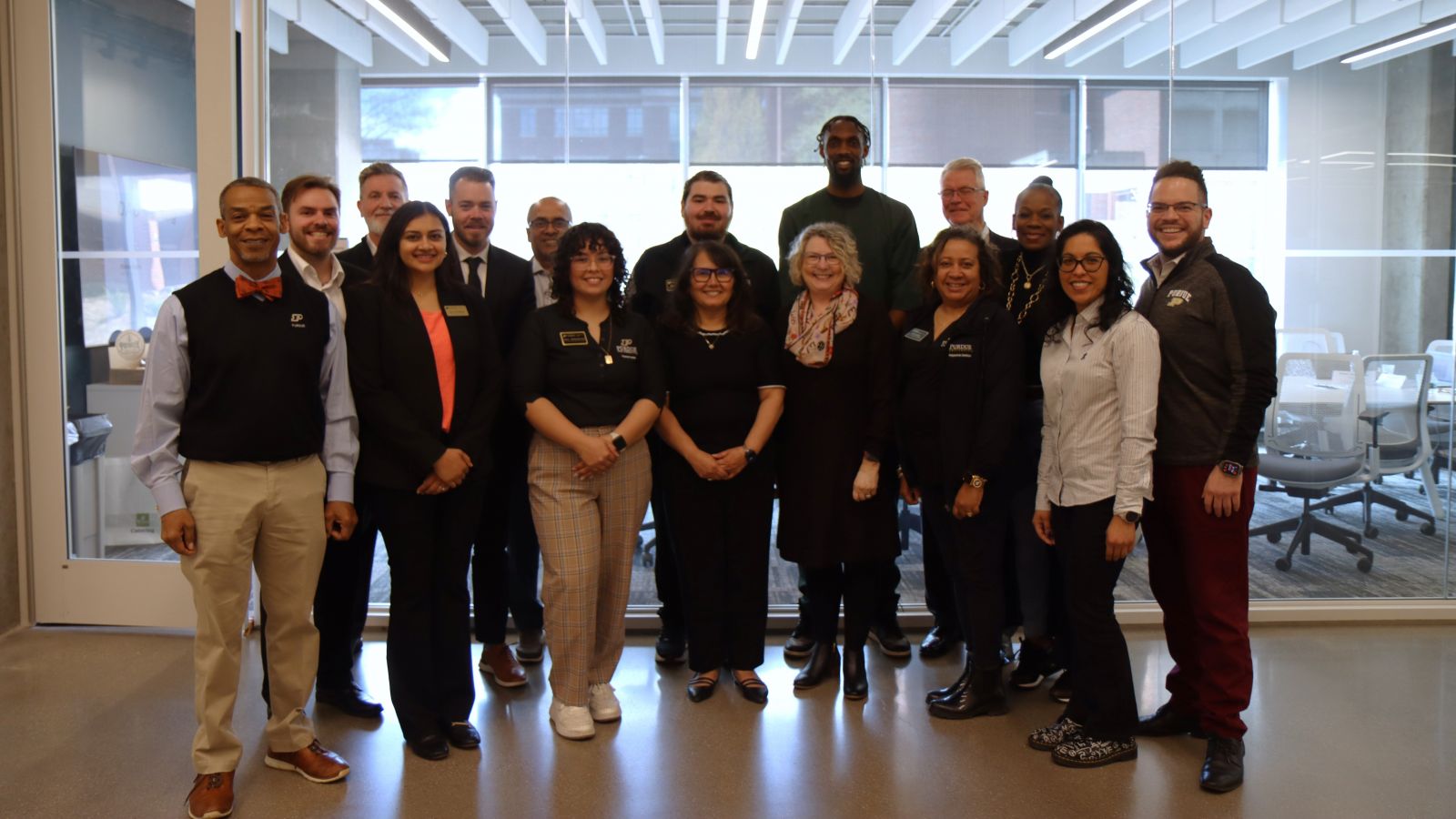
On April 12, the inaugural meeting of Purdue Polytechnic’s Diversity Advisory Council convened to determine high-level goals for the college, and achievable benchmarks by which the group can measure progress in the years to come.
The newly-convened council is itself an exercise in diversity, with members coming from a wide range of industries pertinent to Purdue Polytechnic’s specialties. A full list of the industry partners and alumni that comprise the council can be found near the end of this article.
Priorities for the new Diversity Advisory Council are as follows:
1. Taking a holistic view of diversity
Purdue Polytechnic, the college for technology at Purdue University, is keeping apace with current demographic trends. The council noted that Polytechnic representation of underrepresented student groups is slightly higher when compared to the university average (13% of the total student population at Purdue Polytechnic, approximately 12% university-wide).
“Underrepresented” in this context cuts across a wide swathe of categories, dealing both with demographics as well as intellectual diversity, in line with the priorities of Purdue’s Office of Institutional Equity.
"American academia is facing an unprecedented attack on diversity, equity and inclusion," said Tayo Adesanya, cofounder and CEO of Lola Vision Systems. Adesanya began his own academic career at Purdue with a Bachelor's in electrical engineering technology, and now serves on the council. "We need voices to highlight the benefits of the work already done [in creating a more diverse academy.]"
In this case, challenges and goals include addressing the lower retention and graduation rates among underrepresented and first-generation students. The council noted that these outcomes must be improved in order to positively affect broader diversity initiatives.
2. PEAK Scholars
Several members of the Diversity Advisory Council (including Donzel Leggett and Randy Sergesketter) have been instrumental in starting up the Polytechnic Excellence Accelerating Knowledge (PEAK) Scholars Program. PEAK is designed to identify high school students with an early interest in Polytechnic disciplines. The aim is to create a seamless pathway from identification of such students, to recruitment and ultimately support through to their graduation.
The council is particularly committed to ensuring that PEAK provides sufficient support over four or more years of education. The goal is that, by giving the needed support to students facing a statistically higher risk of dropping out, graduation rates can be increased for the better.
'[We] aim to support future students who might otherwise be overlooked or discouraged from pursuing impactful careers," Adesanya stated. "The support I received from Purdue’s Minority Technology Association propelled me to become a young CEO in the $300 billion autonomous machines market within the semiconductor industry. Similarly, the PEAK program aims to connect and support students with peers who share similar backgrounds and cultural experiences, fostering their success on campus and beyond."
Purdue Polytechnic employees dedicated to the administration of the PEAK program may ensure success in this regard by reaching out early—i.e. to Indiana’s high school networks (including Polytechnic’s own high schools) to make such connections early.
3. Departmental collaboration
The council also discussed methods for opening up new communications channels between academic units within Purdue Polytechnic. The goal in this case is to find ideal placement for underrepresented students who have expressed interest in the college’s majors.
4. Funding and Support
Through the commitment of Leggett, Sergesketter and others, PEAK and other crucial initiatives have been able to get off the ground. But in order for them to do the greatest good in the long-term, a grassroots support network is also vital.
Purdue Polytechnic's Diversity Advisory Council—current members:
- Donzel Leggett - TLI/OLS 1991 - VP of International Supply Chain, General Mills
- Melody Birmingham – TLI/OLS 1994 – EVP NiSource & Group President of NiSource Utilities
- Randy Sergesketter – TLI/OLS 1980 - SVP & Strategic Advisor, Global Crop Harvesting, John Deere
- Tayo Adesanya – EET 2011 – Founder Agbara Life Inc & Lola Vision Systems
- Candice Nash – TLI/OLS 1993 - Regional HR Manager, Toyota Motor Sales U.S.A. Inc.
- Gail Farnsley – Krannert 1997 - Retired VP, Executive Partner, Gartner Inc.
- Rue Patel – TLI/OLS 1988 – Founder RueWorks
- Gabriel Pirtle – ET 2013 - VP of Product at JPMorgan, Asset and Wealth Management
- Devis Mulunda – E&CT 2003 - Director Outdoor Lighting Segment North America, Signify
- Kelley Mulunda – EET 2004 – Senior Member of Engineering Staff, L3Harris Technologies
- Joseph Pabst – SATT 2000 - Vice President Commercial Credit Risk, American Express
- San Pathik – ET 2004 – VP of Technology, Element Three
- Jose Martinez – TLI/OLS – 2010 – Assistant Plant Launch Operations Manager – EV, Spring Hill Manufacturing
- Joshua Nelson – E&CT – 2012 – Global Program Manager, Special Projects, Motorola Solutions
- Dioselin Gonzalez – TLI/OLS 2005 - Principal Software Architect, Microsoft Research, Microsoft Corporation
